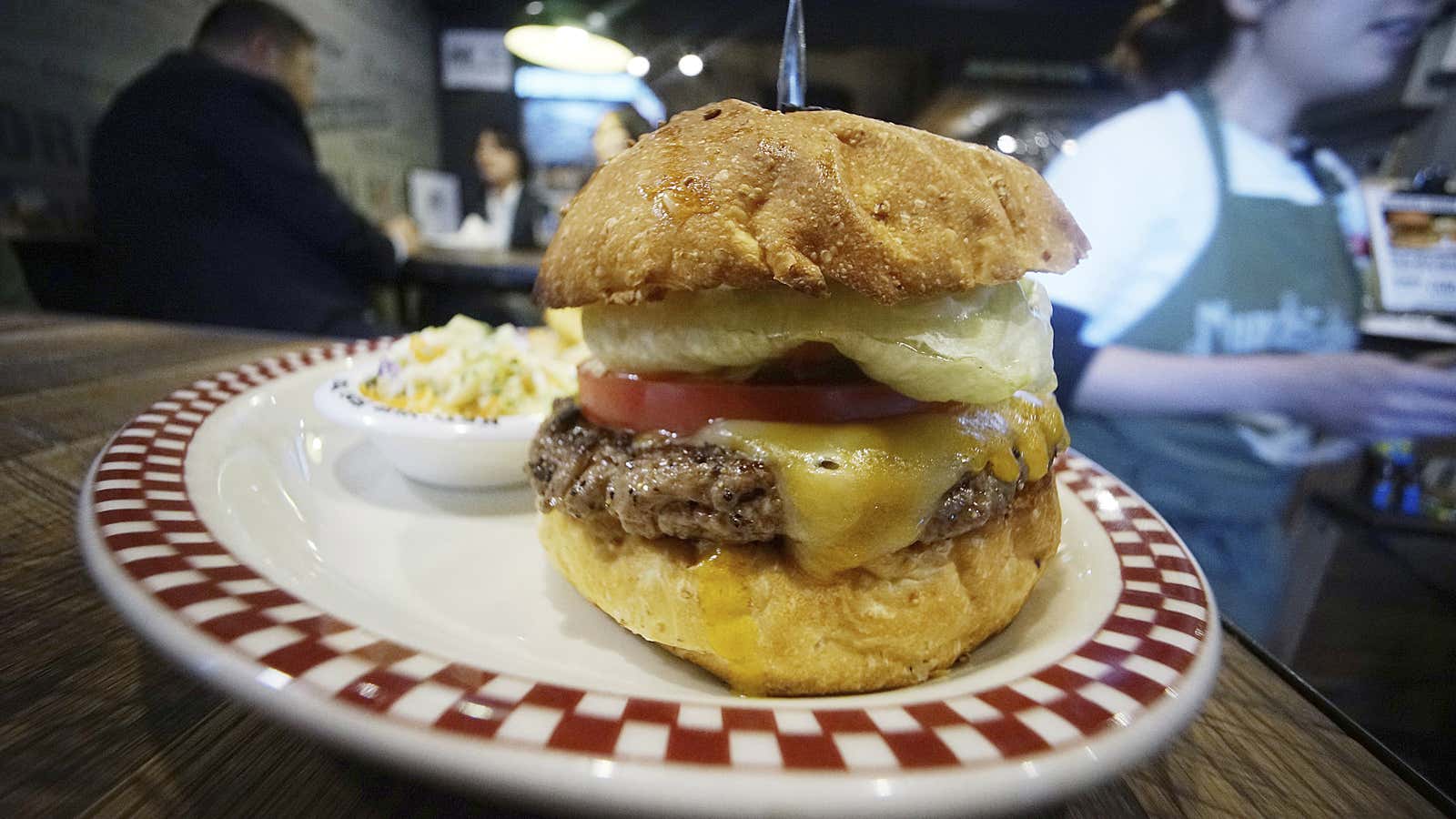The American appetite for meat is expected to hit an all-time high this year.
Annual red-meat and poultry consumption in America will reach 222 pounds per person for the first time in 2018, according to food-availability estimates by the US Department of Agriculture (USDA). The numbers measure how food supplies move from production to retail for domestic consumption. At 222 pounds per person, overall meat consumption comes out to the equivalent of more than 800 quarter-pound burgers per person when measured by weight, or about 2.4 burgers per day.
The USDA estimate—which shows a 14% increase over the past 50 years—is a gauge for actual consumption drawn from sources up and down the food-supply chain, not a hard-and-fast number. Still, it’s a popular proxy for the government and industry groups to use when considering consumer behavior.
Noteworthy, though, is that while meat consumption has gone up in the US, that rate was far outpaced by meat production. Between 1990 and 2018, American farms increased food-animal production by nearly 66% to 103 billion pounds. In that same period, meat consumption per capita only increased by about 12%, according to government data.
That kind of discrepancy in growth is good news meat companies looking to expand their exports and for domestic consumers interested in buying cheaper meat. It also accounts, at least in part, for a growing consumer interest in getting protein from other sources. In the last year, protein-rich plant-based burger companies such as Beyond Meat and Impossible Foods have grown in popularity. Beyond Meat’s plant-based ground-beef replica burgers are now sold in the meat sections at many major US grocery chains. Its product also recently got onto the menu at all TGI Fridays.
The meat section is poised for more disruption. Now that plant-based burgers have infiltrated, cell-cultured “clean meat” products are also looking to get into the game. Established meat companies such as Tyson Foods and Cargill have invested in meat-alternative startups. It’s a sign that the traditional meat section of the supermarket is quickly morphing into a protein section.
